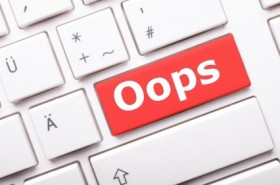Not surprisingly most articles which have caught our attention relate to the challenge of whether or not to disconnect whilst on holiday. Here are a few which should give you food for thought about why and how to go for an email detox and disconnect.

And just in case you are careless with your Out of Office message.
So before you take your vacation, be sure to set a safe and simple Out of Office message which discloses as little information as possible. Then switch off and have a proper break to re-charge the batteries.
Tags: cyber crime, Digital detox, email cyber crime, Email detox, email free vacation
Over the past few weeks three themes have dominated – the resurgence of writing to reduce email overload, email scandals and cyber crime.

Articles of note
Tags: cyber crime, pen and paper, Writing
January into February are often lean months for good news stories outside of real major world events. From a technology standpoint, three threads really stood out, security, email etiquette and the effect of mobile devices on our wellbeing. In the light of the Sony hacking offensive the emphasis on cyber crine and email etiquette is not surprising. Here are our top five articles and blogs of note.

Articles of note
If email security, email etiquette or the impact of email overload on well being are on your agenda for 2015, why not contact Mesmo Consultancy now for a free consultation? Either call us on +44 (0)1202 434340 or email us.
Tags: Articles of note, cyber crime, email etiquette, email overload, email security, Sony hacking, well being
A year from now, will we still be using email as the prima face business communications tool? That is the question I am always asked at this time of year. In a word ‘yes’. It is not only the most durable technological innovation, but in essence it has changed little in its thirty year life cycle. It is still a lean and mean messaging system, all be it we have bent it to be all things to all people, (from a channel through which to manage people, make them redundant and invite them for sex tonight). However, here are five things I do foresee with respect to email which may also help reduce email overload.

The future of email
Consequently, email overload may become less of a drain on people’s productivity as we learn to change our email behaviour. However, it will be important not to replace one set of bad behaviours with another. A change in email behaviour needs to be carefully managed and we at Mesmo Consultancy will be pleased to share how with you how we have helped other organisations make this transition.
Where do you feel we will be with email by the end of 2015? Will it still be the dominant backbone of business communications?
Tags: cyber crime, disconnect on leave, Email behaviour, email overload, Mesmo Consultancy, pen and paper, Unified inbox

Email etiquette for reputation and brand preservation
What can we learn from the Sony hacking 2014 saga? First and foremost no one is immune from cyber crime, regardless of the technology you put in place. Second is just how nasty, vengeful and determined are today’s hackers. Third, nothing is confidential once committed to email.
It is not just the scale of the attack (possibly costing Sony up to $200M) and the stealing of corporate confidential data which should be ringing alarm bells.
It is all the in-fighting and bickering which the leaked emails disclosed which should be raising the fire alarm in every CEOs ears (regardless of the business’s size and sector).
Why is that email seduces us into committing vituperative words to the archives? We would never put them down on pen and paper and if we did they would most probably be shredded before they were ever sent.
Perhaps one reason is the 24 x 7 x 365 world in which we live and the feeling that we must either respond and say what’s on our mind regardless of what might happen to these words. Equally email does not have the tactile sense of permanency of paper. Although that might change now with such a high profile hacking incident.
What lessons can lesser mortals and smaller businesses learn from such a malicious attack? From the email perspective here are my key learning points.
We have helped many clients prevent emails wars. For a free consultation on how we can help you and your organisation reduce the risk of damaging your brand and professional reputation please contact us by email or phone us now.
Tags: business email etiquette, cyber crime, Quite email, Slow email, Sony hacking 2014, Sony hacking scandal